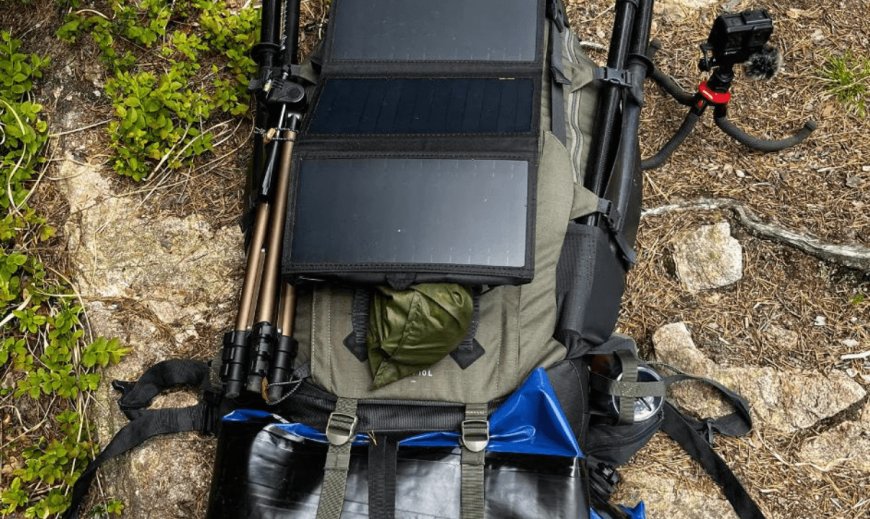Top Tips for Maintaining Your Fishing Pole and Gear
Discover essential tips for keeping your fishing pole and gear in top condition. Learn how to clean, store, and maintain your equipment for long-lasting performance.

Fishing is not just a hobby but a way of connecting with nature, testing your skills, and finding solace. To ensure your equipment serves you reliably, maintaining your fishing pole and fishing gear is paramount. Proper care extends the lifespan of your tools and ensures optimal performance during your fishing adventures. In this blog, we’ll share practical tips to help you keep your fishing equipment in excellent condition.
1. Rinse After Every Use
One of the simplest yet most effective maintenance tips is rinsing your fishing pole and fishing gear after each use.
-
Freshwater Fishing: A quick rinse removes dirt, debris, and organic matter that can degrade your equipment.
-
Saltwater Fishing: Salt can corrode metal components, damage reels, and weaken your fishing line. Always rinse your gear with fresh water after saltwater trips to prevent rust and deterioration.
Pro tip: Use a mild soapy solution and a soft cloth to clean stubborn spots without scratching or damaging the equipment.
2. Check and Replace Your Fishing Line
Your fishing line is critical to a successful catch, so regular inspection is essential.
-
Look for Frays: Check the line for nicks, cuts, or abrasions, especially after fishing in rocky areas or around vegetation.
-
Replace Periodically: Monofilament lines should be replaced every season, while braided and fluorocarbon lines can last longer with proper care.
Neglecting your line can lead to breakage at the worst possible moment, costing you a prized catch.
3. Clean and Lubricate Your Reel
Your reel is one of the most intricate pieces of fishing gear, requiring special attention.
-
Disassemble the Reel: Carefully take apart the reel following the manufacturer’s instructions.
-
Remove Dirt and Debris: Use a small brush or cotton swabs to clean the internal parts.
-
Apply Lubrication: Use reel oil to keep moving parts functioning smoothly.
Regular maintenance prevents rust, reduces wear and tear, and ensures that your reel performs smoothly every time.
4. Store Your Fishing Pole Properly
Improper storage can damage your fishing pole and reduce its longevity.
-
Avoid Pressure Points: Never lean your pole against a wall for extended periods, as it can warp under stress.
-
Use Rod Holders: Invest in a quality rod holder or rack to keep your poles organized and prevent accidental damage.
-
Temperature Control: Store your equipment in a cool, dry place to avoid heat and humidity, which can weaken materials and cause corrosion.
Pro tip: Keep rods upright and avoid stacking heavy items on top of them during transportation.
5. Inspect Guides and Tips
The guides and tips on your fishing pole play a crucial role in the performance of your line.
-
Look for Damage: Check for cracks or grooves in the guides, as they can fray your line.
-
Clean Regularly: Wipe down guides with a soft cloth to remove dirt and debris that can hinder smooth casting.
A damaged guide can lead to unnecessary line wear and negatively impact your fishing experience.
6. Protect Your Tackle Box
Your tackle box is the heart of your fishing gear, storing hooks, lures, and other essentials.
-
Organize Regularly: Keep lures and hooks separated to prevent tangling and damage.
-
Dry Your Tackle: After fishing, ensure your tackle box and its contents are dry before storage to avoid rust.
-
Replace Rusty Items: Discard old or corroded hooks and lures to maintain effectiveness.
A well-maintained tackle box keeps you prepared and reduces the risk of damaging your other equipment.
7. Tighten Loose Connections
Over time, the repeated use of your fishing pole and reel can loosen screws and connections.
-
Check Before Every Trip: Inspect the reel seat, handle, and other connections to ensure everything is secure.
-
Use a Screwdriver: Tighten loose parts carefully without over-tightening, which can strip the threads.
This simple step can prevent unexpected failures on the water.
8. Regularly Test Your Gear
Before heading out for a fishing trip, test your gear to identify potential issues.
-
Cast Your Line: Practice casting to ensure your rod, reel, and line work seamlessly.
-
Inspect Moving Parts: Check the drag system, reel handle, and pole flexibility for signs of wear.
This proactive approach helps you address minor problems before they become major headaches.
9. Upgrade Your Fishing Gear When Needed
No matter how well you maintain your equipment, there comes a time when upgrading is necessary.
-
Outdated Poles: Replace old rods with modern options that offer better performance and durability.
-
Advanced Reels: Newer reels often feature improved materials and technology, making them worth the investment.
Regularly evaluate your gear to ensure you’re using the best tools for the job.
10. Keep a Maintenance Schedule
Consistency is key to effective maintenance.
-
Create a Checklist: Include tasks like cleaning, inspecting, and lubricating gear on a weekly or monthly basis.
-
Log Issues: Keep a record of problems you’ve encountered and resolved to track your gear’s condition over time.
A little regular effort can save you significant time and money in the long run.
Conclusion
Maintaining your fishing pole and fishing gear is essential for preserving their functionality, enhancing performance, and ensuring a successful fishing experience. By following these tips, you’ll not only extend the lifespan of your equipment but also improve your chances of landing the perfect catch.
With proper care and attention, your fishing gear will continue to serve you reliably, helping you create unforgettable memories on the water. Happy fishing!
What's Your Reaction?














![Noots Focus Reviews [Truth Exposed 2025]!](https://news.bangboxonline.com/uploads/images/202501/image_430x256_678e3b94881a1.jpg)
![Vivalis Male Enhancement: The Must-Know Ingredients [2025 Update]](https://news.bangboxonline.com/uploads/images/202501/image_430x256_678e3b54e396c.jpg)







